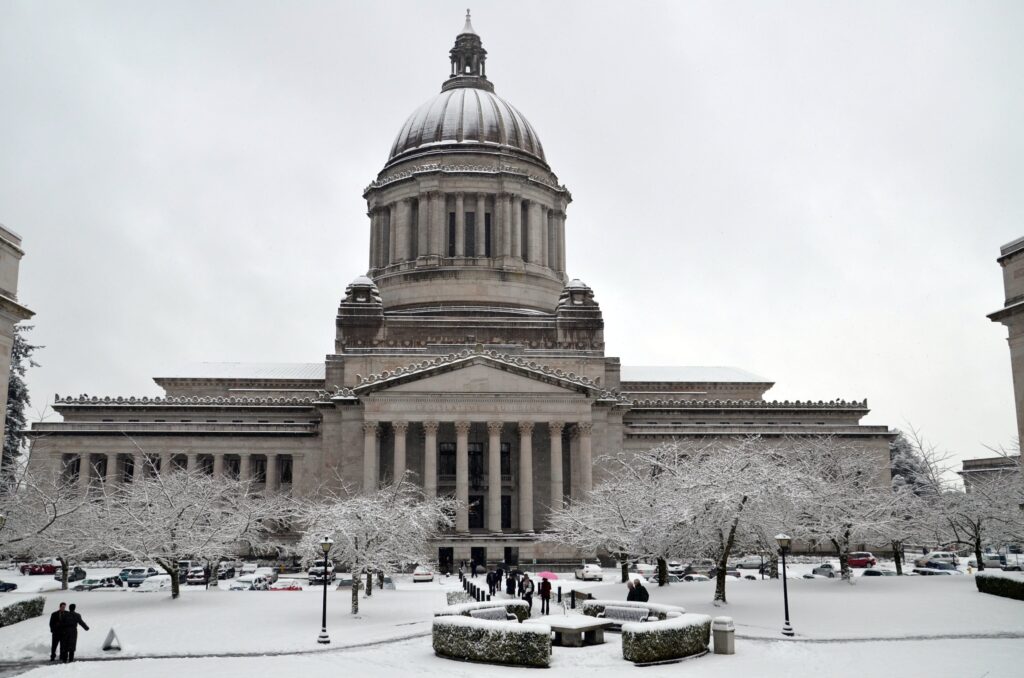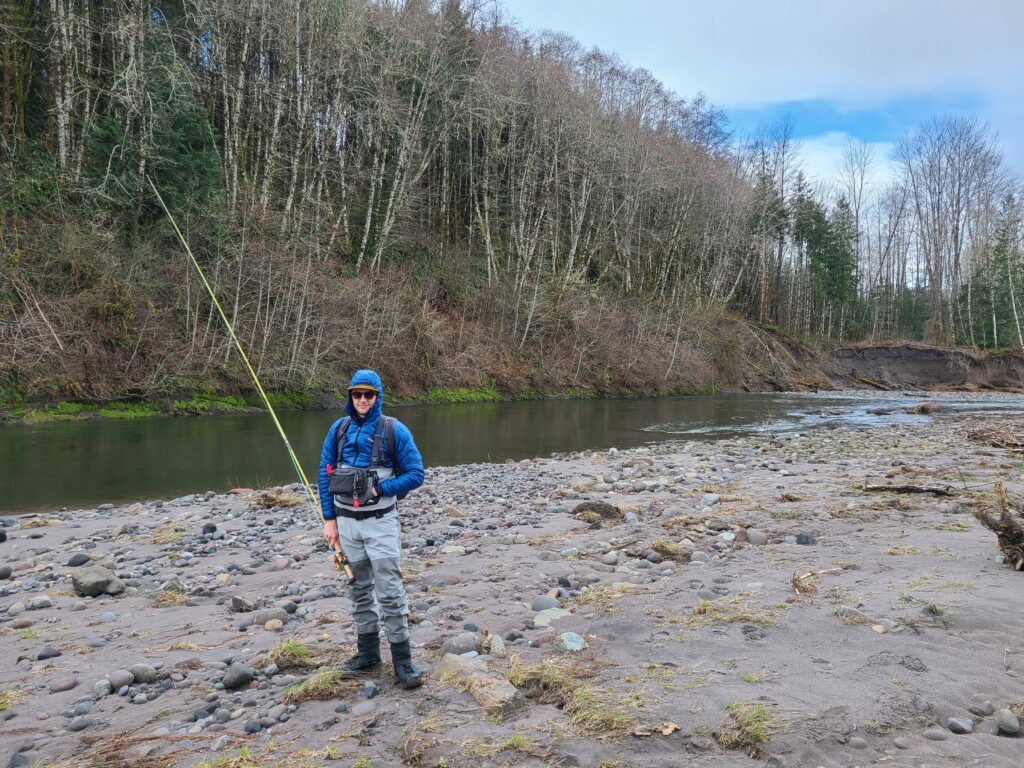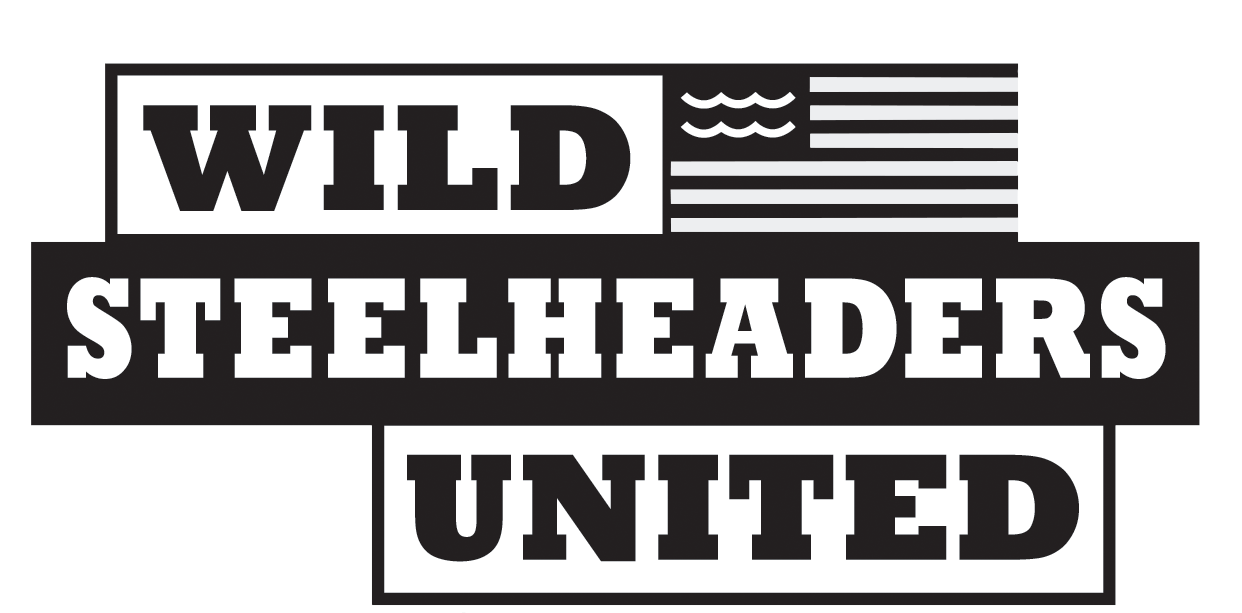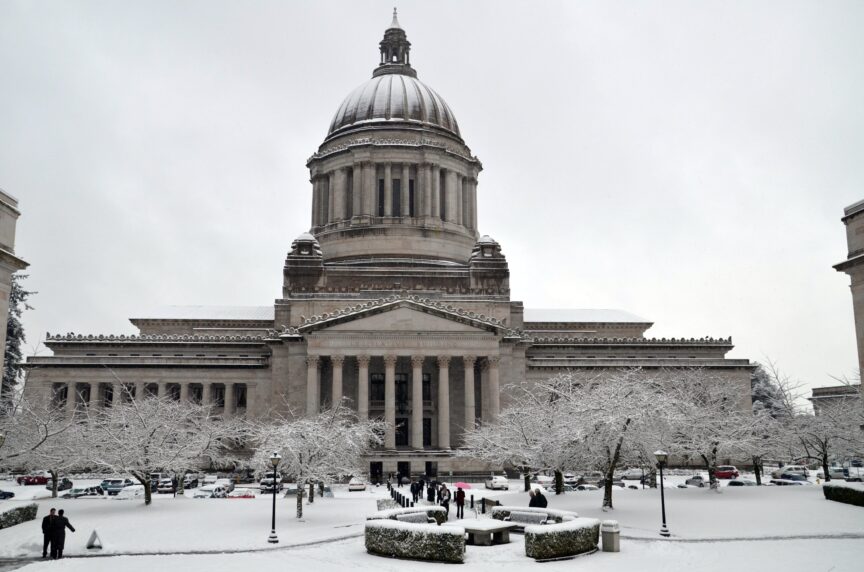
Our government affairs lead provides a preview of our priorities in Olympia this year
Last week, the Washington State Legislature kicked off its 2023 legislative session. Washington operates on a biannual budgeting system, and in odd numbered years convenes a longer legislative session to pass a new state budget for the next two years. As such, expect to hear much more about funding and budget issues this year as we bring you updates from Olympia.
A few priorities this year for us here at Wild Steelheaders United and Trout Unlimited that we will be working on include an important policy bill, and several funding items important to steelhead management and recovery.
On the Policy Front
There is a significant bill that builds on legislation from last session by continuing the work to limit the impacts on Columbia River B-run steelhead and other wild salmon stocks by the commercial non-tribal gillnet fleet. You can read our full blog post on this legislation here.
Governor Jay Inslee has also introduced legislation that would put greater protections on riparian areas. While targeting benefits to salmon, these habitat protections would also benefit Washington steelhead. You can follow the bill’s progress through the session and read its full language here.
Digging into Budget Issues
The Washington State budget is made up of three smaller budgets: the Operating Budget, which funds the day-to-day costs of the State government; the Transportation Budget, which funds all transportation projects in the state; and the Capital Budget, which funds projects or groups of projects. There are a large number of important funding items for steelhead spread across these three budgets, so I will just focus on three broad categories.
First are two important funding items for moving forward on Lower Snake River Dam removal, a critical step to recovering Columbia Basin steelhead and salmon stocks by expanding access to habitat and increasing adult and juvenile survival. The funding items would support detailed implementation plans for transportation and energy infrastructure improvements to replace the benefits currently offered by the dams.
Second is a pair of Washington Department of Fish and Wildlife (WDFW) funding items, both important but for different reasons. First is funding for improved volunteer coordinator capacity within the Department, and a goal of doubling the number of volunteer hours the Department uses in conservation and science projects across the State. The integration of volunteers into this work is a key part of the TU ethos: it generates better engagement with the public, increases education on fish issues across the state, and increases Department capacity within existing funding.

We are also closely following a request for additional funding to support the permitting of Columbia River Fisheries and the necessary ESA permits. NOAA requires fishery managers to submit federal permits for any fisheries impacting species protected under the Endangered Species Act. Currently, many of the WDFW’s permits for the Columbia River Basin tributaries are incomplete or out of compliance. The proposed funding would provide additional staffing resources to enable WDFW to complete and file the necessary permits. If these permits aren’t submitted to NOAA and approved, salmon, steelhead and other fisheries in the basin could be closed. This lack of necessary permits also prevents the Department from possibly opening new fisheries.
Finally, there are many critical habitat funding sources in the budget this session. As our readers know, TU does vital habitat restoration and water work across Washington and a large number of these projects receive funding through the Washington State Capital Budget. Robust support of these state resources not only means better funding for TU projects, but for all habitat recovery work taking place across Washington. Areas of special interest to steelheaders would be funding through the Department of Ecology for the Chehalis Basin Strategy’s aquatic restoration work, our Yakima Basin Integrated Plan work, and the Recreation and Conservation office’s Washington Coastal Restoration and Resiliency Initiative funding restoration work on the Olympic Peninsula and coast. Other broader funding sources like the Recreation and Conservation Office’s Brian Abbott Fish Barrier Removal Board and Salmon Recovery Funding Board Grant Program also fund large numbers of projects that benefit steelhead.
Steelhead Management
As many winter steelheaders in Washington are aware, there are continued discussions about additional funding for Washington coastal steelhead management coming out of the coastal steelhead proviso development process that WDFW will be put before the Legislature. We will keep you updated with more details when that happens. We’ll also be providing a deeper dive into the finalized plan in a later blog post.
There are other existing funding items within the WDFW budget that we support, but one that we’ll be tracking closely given our involvement in the development of the concept and plan is the agency request to continue implementation of the Quicksilver Portfolio in Puget Sound. Stay tuned, as we’ll be providing an update on that work in the coming weeks.
Advocacy Opportunities
These policy and budget items will need support from the public to pass and it is important that legislators hear that they are important priorities for their constituents. If any of these items proposed this legislative session have piqued your interest, there are a number of good ways to support this important effort.
The first would be to keep in touch: sign up for our email list and pay attention to our blog and social media accounts for opportunities to have your voice heard. Second would be to attend our Washington State Advocacy Day on February 7 to meet with state legislators on issues important to steelhead, salmon, and rivers in Washington. You can learn more about this opportunity and how to join us here.
As always, it is a great idea write an email or call your state legislator to let them know that these steelhead issues in Washington are important to you. You can find which legislators represent your district, and the contact information for their offices, here: https://app.leg.wa.gov/DistrictFinder/


